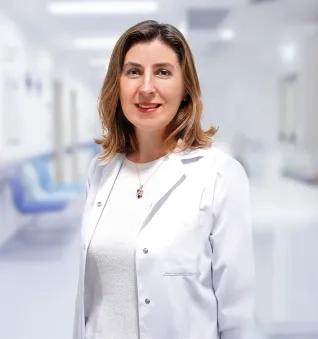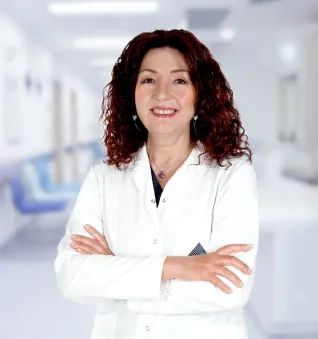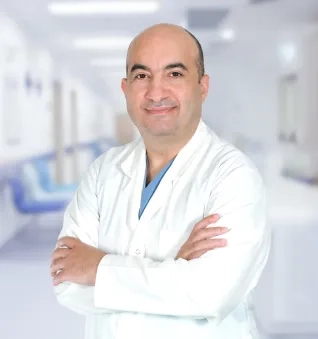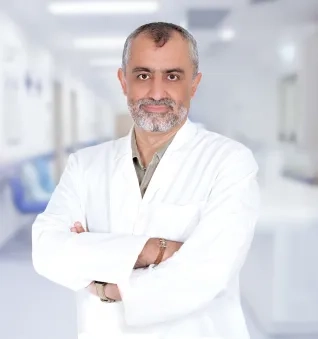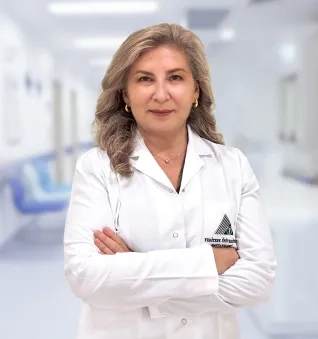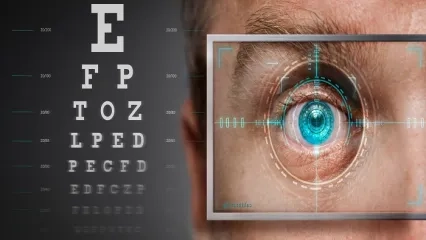Alo Yeditepe
Alo Yeditepe
Thyroid-Related Eye Diseases
Operating under Yeditepe University Hospitals, the Eye (Ophthalmic) Center is an ophthalmology center that trains students and assistants in the Department of Ophthalmology and provides services in 15 different branches.
What is Thyroid-Related Eye Disease?
Several eye disorders and deformities occur due to the autoimmune inflammatory disease of the thyroid gland, which plays an important role in the regulation of metabolism, Orbit, and surrounding tissues; muscles around the eyes, orbital fat tissue, and eyelids are affected. This condition can be seen more frequently in cases where the thyroid gland is overactive (hyperthyroidism).
Systemic symptoms such as palpitations, sweating, tremors in the hands, weight loss, and extreme nervousness are seen in this disease, which is also called "Graves' disease" or "Basedow-Graves' disease".
What are the Eye Findings in Thyroid-Related Eye Disease?
Ophthalmological findings may vary according to the degree of the disease. Symptoms such as eye irritation, stinging, redness, eye pressure, protrusion of the eyes (exophthalmia, proptosis), excessive opening of the eyelids (lid retraction), strabismus, double vision, and decreased vision may occur. This disease, which is also known as "thyroid orbitopathy" or "Graves' orbitopathy", can be very mild or serious enough to cause vision loss. Low vision and vision loss may occur due to severe dry eye or proptosis, or it may occur due to compression of the optic nerve.
What is the Surgical Treatment of Thyroid-Related Eye Disease?
If active disease cannot be controlled despite medical treatments and there is a risk of loss of vision, surgical treatment (orbital decompression) may be required. Apart from this, surgeries for eye anomalies and strabismus are performed after the active period of the disease has passed.
Orbital decompression surgeries can be performed to retract the eyes. In orbital decompression surgeries, the orbital enlargement process is applied, allowing the eyeball to move more backward. Bruising and swelling disappear in about 10 days.
In the case defined as lid retraction due to excessive opening of the upper eyelid, upper lid surgeries or botox injections to the upper lid can be performed. Blepharoplasty to correct swelling on the lids and strabismus operations to correct double vision can be performed.
Although the symptoms of the disease decrease over time, there is never a complete recovery.
What Kind of a Path Is Followed in the Follow-Up and Treatment of Thyroid-Related Eye Disease?
A multidisciplinary approach should be followed in Graves' disease. Regular follow-up and treatment of the patient are carried out by endocrinologists, general surgery specialists, and ophthalmologists. The first step in the treatment of thyroid disease is medical or surgical treatment.
In the active inflammatory period, eye symptoms are treated conservatively; teardrops and, if necessary, cortisone therapy are applied. Smoking should be avoided because it worsens eye symptoms.
This content was prepared by Yeditepe University Hospitals Medical Editorial Board.
”
See Also
- What is Cataract? Symptoms and Treatment
- Do not Risk Going Blind While Trying to Have Colored Eyes
- Watch Out Blue Light Emitted By Devices For The Health of Your Eyes
- Pollen is Now Seen Outside of Seasonal Changes
- Pay Attention to the Flashing Light in the Eye!
- Medication Administration to the Eye
- Glaucoma
- If You Have Diabetes, Consult An Ophthalmologist At Least Once A Year.
- It was Told that She could Lose Both Eyes, but She Recovered with an Operation
- Untreated Strabismus Can Cause Vision Problems!
- The Danger to the World: MYOPIA
- Eyelid Diseases
- Is Strabismus Genetic?
- One in 20 Newborns Have Tear Duct Obstruction
- Are Flies Flying Before Your Eyes?
- 7 Tips to Protect Your Eye Health
- Allergic Conjunctivitis (Eye Allergy)
Alo Yeditepe


